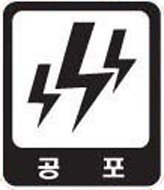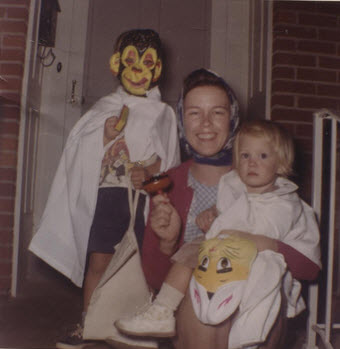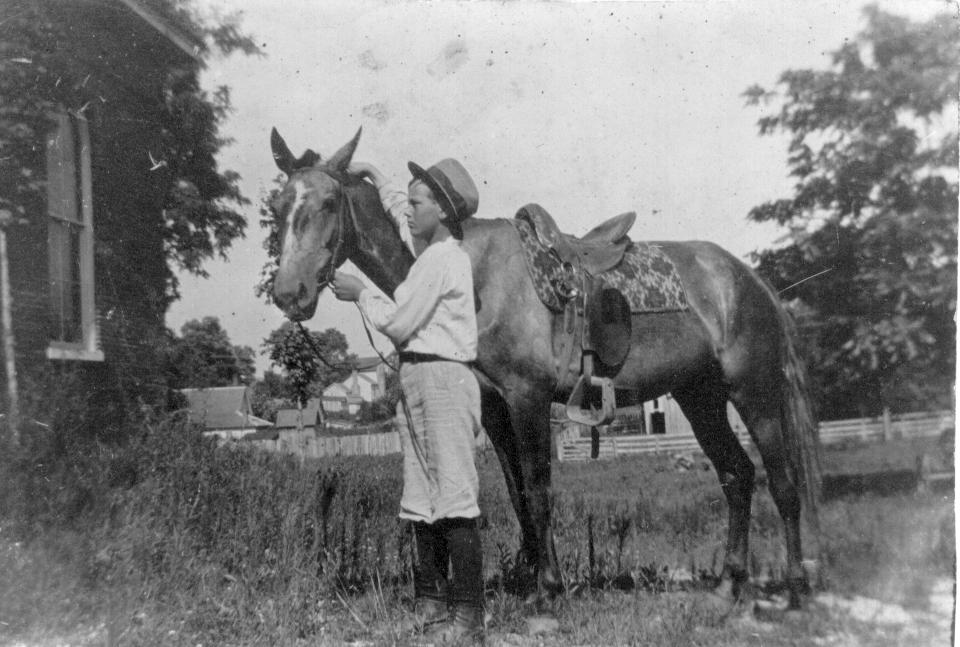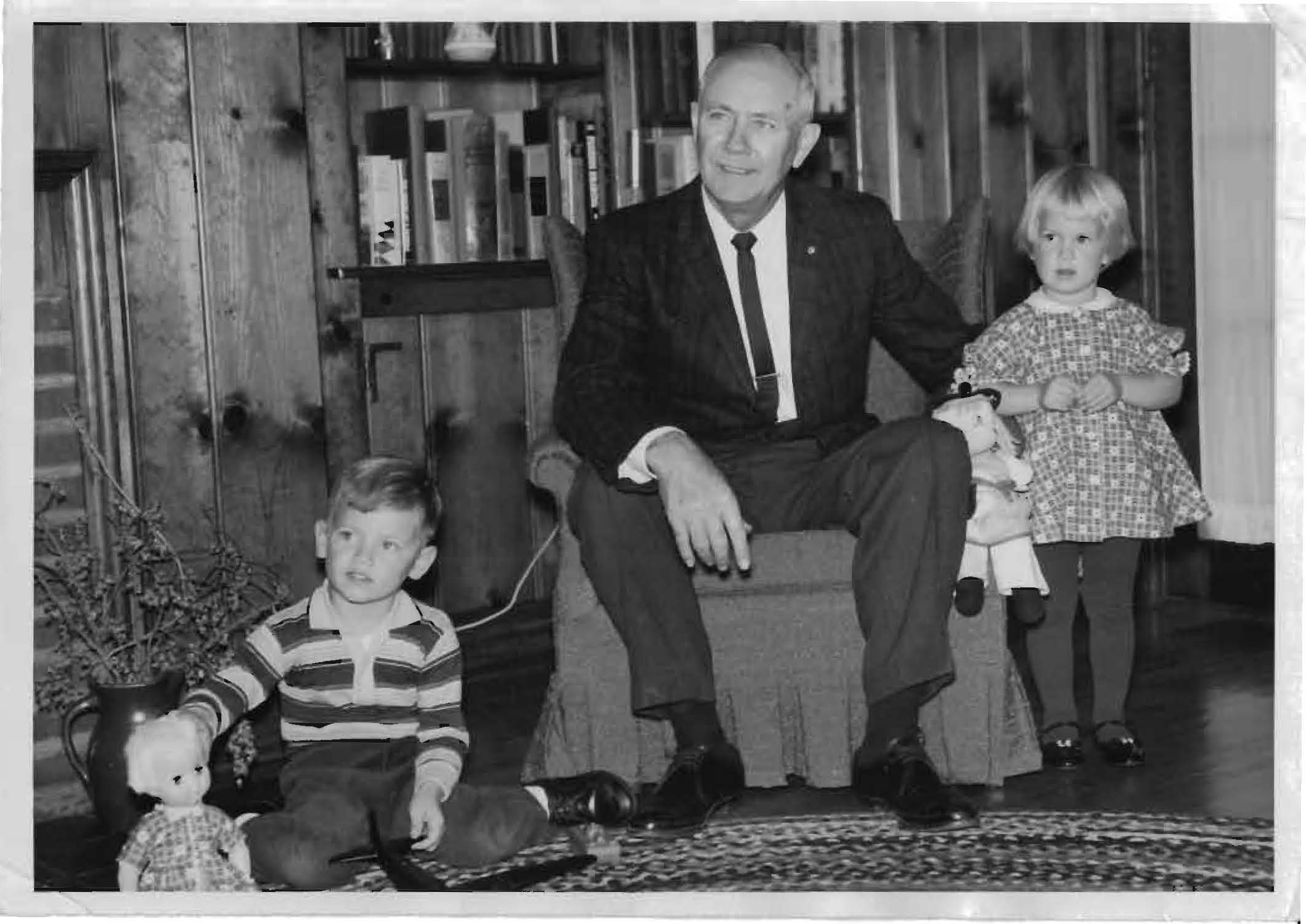
Yesterday, a colleague of mine received a disturbing email from a man who had been urgently interested in enrolling in UCF’s MFA program. In her role as advisor to our current MFA students, she’d been providing him information about our program and advice about applying to it. I had also exchanged a few emails with him, as he was determined to enroll in a course I’m teaching in the spring semester.
The issue is that this fellow wanted to take a graduate course in creative nonfiction this spring. We do sometimes allow “nondegree” students to take our grad courses when there is space in them and they can demonstrate sufficient knowledge and background to work at the graduate level.
However, this person had the odd idea that if he took one such course, he would somehow qualify to get a tenure-earning job in creative nonfiction writing that is currently open at an area college. Now, I’m not at that college, but I know a bit about how these things go, and, of course, that’s probably not going to happen no matter how brilliant this man might be. In fact, over at that college, a pile probably two feet high is already accumulating with applications from across the country—from people who already have MFAs and PhDs, publications in the field, even books, and time spent teaching writing at the college level. In spite of clearly being an intelligent man with two advanced degrees already, this guy has none of that. I told him that one graduate course would not likely qualify him for this job.
He also didn’t seem to fully understand what creative nonfiction is, needless to say a serious deterrent to gaining a job in the area. My colleague had given him a few copies of The Florida Review so he could read some examples, and when he emailed me to request entry into my course, he sent me a manuscript that seemed entirely fictional, though perhaps heavily autobiographical. When I noted this to him, he argued, and told me that if Tim O’Brien is considered to be writing creative nonfiction, then so is he. I responded that most of O’Brien’s work is considered fiction. Perhaps I should have added, “as is noted on the ISBN page of each of his recent books.”
Eventually, after numerous emails where he was told that a) a committee has to meet to make admissions decisions, b) we only consider applications in the spring term for admission in the fall, c) my course is full and we won’t crowd a class for a nondegree student, and d) we can’t make exceptions, even for him, he became enraged.
In the email he sent my colleague, he noted that he had made it “crystal clear” that he “needed to begin in Spring. … I told you that this was the passage to the teaching job at [x college]. Otherwise, I wouldn’t be caught dead in the creative writing program at UCF.” He went on to add, among other insults (“inconceivable lack of competence”) and threats (“letter for your permanent file”), that “I have had the benefit of more and better education than you or anyone in your department and I was treated like an ugly stepchild. So,” he added, “take your stupid MFA and shove it up your ass.”

Amish schoolhouse, Lancaster, Pennsylvania.
In the wake of the Connecticut shooting just a few days before, this man’s email gave me a gooey knot in the pit of my stomach. After I read it and tried to comfort my upset colleague via email, I went back into the living room where my husband was watching the latest Batman movie, and said, “Maybe you should give me a bullet-proof vest for Christmas.”
I don’t mean to accuse this particular man of murderous intentions. Perhaps, in fact, those who take advantage of language to vent their spleen are less likely to do it with weapons.
Maybe it made me queasy because I regularly teach Jo Ann Beard’s powerful essay, “The Fourth State of Matter,” which chronicles the 1991 mass murder of five at the University of Iowa by a graduate student who felt he hadn’t been properly honored for his work. Perhaps it is because the shooter at Virginia Tech in 2007 was a creative writing student. Or that in 1996, while I was a graduate student at Penn State, a rare female shooter (and not a student) set out to massacre as many as she could on campus; fortunately, she didn’t have an automatic weapon, and her having to pause to reload allowed a young man to disarm her before she could kill more than 1 and injure another.
There’s also the fact that in 1989 when Marc Lépine singled out and killed 14 women at the École Polytechnique in Montreal, just because they were women who dared to study engineering, I was beginning to contemplate a teaching career. And that, although I had never driven past the particular Amish schoolhouse in Lancaster County where in 2006 a truck driver went in and lined up the girls (not the boys), shooting 11, killing 5, and leaving 1 severely disabled, I had frequently driven past several such schoolhouses on my trips back and forth between State College and Lewisburg in the couple of years before I moved to Florida.
It’s not that only teachers and professors or only females are targeted in these attacks, though often they are the focus of rage. Sometimes men and boys are killed, sometimes it is even disgruntled professors who do the killing, as in the cases of the University of Alabama in 2010 and Concordia University in 1992. It’s not even as though all such shootings happen at schools—they happen at movie theaters, at houses of worship, at other kinds of places of employment.

Still, teachers at all levels from elementary school to university graduate programs sustain irrational and unhinged attacks of all kinds. Usually, we take this verbal kind with a grain of salt because it happens so frequently.
We are seen as—and sometimes actually are—the keepers of the keys. We give grades and report cards, we evaluate other human beings, we determine who passes to the next level and who has to try again, we decide sometimes that a child or an adult doesn’t merit a degree or a certification or a diploma. There’s room for a lot of resentment about that, even though most of us go into our careers in order to foster learning and help people make the most of their lives.
Most of the time, we do help people make the most of their lives. This man’s email juxtaposes itself against the backdrop of physical violence in Connecticut, but also against the background of my own preparations this week as I produce a binder to apply for a teaching award. In front of me I have all the notes of thanks, all the end-of-term reflections and finished projects that show how much my students have indeed learned, the list of my undergrads who have gone on to prestigious graduate programs elsewhere. That is good and satisfying. I hang on to that.

Self-Esteem Shop photographed by Dave Hogg, Royal Oak, Michigan, 2005.
The experts say that there has been no significant rise in the number of such rampage killings in the past decade.
Yet, I do sense changes, if not in the threat of death, then in the general demeanor and respect of my students and others I encounter in my work world. It’s not that I didn’t ever encounter over-demanding or angry students at the beginning of my career. Perhaps it’s just that I’m getting older and wish I got concomitantly more respect. Or maybe it’s just that behavioral paradigms are shifting to something more casual. Or that people all around are stressed by the struggling economy. Maybe it’s also that in the world of writing (and so many other realms), we are now all expected to be hucksters and self-promoters as much as contemplators and wordsmiths (or whatever work we do). All of this might be tending to make people more aggressive. There’s a sea of mud between healthy self-assertion and self-aggrandizing aggression.
Maybe it has to do with the self-esteem movement introduced into our schools and our society with great intentions back in the 1960s and reaching a peak in the 1980s. Like so many perfectly legitimate ideas—that it was important to encourage children and support their dreams—perhaps the self-esteem movement filtered down in an over-simplified way and got twisted. It got twisted into crap like The Secret and the whole idea that if you just want it bad enough you can have it.
This kind of attitude is often prevalent with my students, even some of the wonderful ones. They are certainly never afraid to ask for what they want, to demand it even. No matter that my syllabus states that 8 absences will earn an F for my course, students expect to pass. No matter that the assignment requires 12 to 15 pages, and they only turned in 6—if they “tried hard” and it was “difficult for me to write about this,” they think their grade should be fine. I had one student this semester who had missed numerous classes, had turned in 1 out of 9 smaller homework assignments, had failed to participate in most of the workshops, and whose own writing had earned her Cs… who came up to me the last week and told me she hoped she could still earn a B.
I won’t even bore you with the web of negotiations between myself and a stunningly talented young man who nonetheless earned a C in my class due to his inability to complete work or manage his time. Flattery? Manipulation? Sincere desperation? Promises of improvement? It was all there, just not the work.
More recently, a graduate student, reportedly a hard-working and lovely person (I have only met her once myself), informed me that she only checks email every few days so that if I want to reach her on short notice, I should use Facebook or Twitter. Since when is it up to a student to define the method of communication between herself and her professor? Since when is it part of my job to explain such basics? This kind of control-taking is noticeably more common among my students today than it was more than twenty years ago when I began teaching as a youthful 30-year-old.
Fortunately, none of these students is threatening. But, still, something is not adding up.

Unfortunately, I can’t get it out of my head that this all somehow correlates with the rise of fantasy genres and the amount of time people spend in fantasy worlds, whether they are in book, movie, video game, or Internet chat room variety, even the uber-cheerful Facebook presentations that people make of themselves. I have environmental concerns about this, which I plan to discuss in a later post, but I worry about human expectations these days, too. I worry that we are making a world that is in reality intolerable and so people turn more and more to fantasy.
My students tell me this repeatedly. They are bored and stressed at the same time. They prefer escape to self-examination. They prefer to spend some time in a world, no matter how evanescent, where they can be heroic and romantic and good-looking and successful, often things they don’t feel like they are in daily life. But I can’t help but believe that we are all affected by where and how and in what modes we spend our time. We come back from these virtual worlds, but I’m not sure our expectations come back with us. And the virtual worlds grow more and more convincing.
In the past week, there has been plenty of talk about “evil.” Even President Obama evoked evil when speaking of the shooting in Connecticut. Yet, I don’t believe that shooter was evil, even if his act was. He suffered from some deep mental illness and desperation, the likes of which we see over and over in these cases.
Plenty of others have already written about the need for better gun control laws—assault weapons simply have no rationale for being readily available except for crime and gun-industry profits. While it is true that we will never prevent people from rampaging if they are determined to do so, the difference between a knife or a manually loaded rifle, on the one hand, and, on the other, an automatic assault weapon is huge in terms of the amount of death someone can inflict.
Plenty of others have written about the need for a better armed and better prepared set of first responders. We certainly have that, increasingly, and it has had little effect. It’s too late by the time they arrive. Here in Orlando, the nightly news has been filled with discussion of appointing an armed security guard at each and every school. I consider that a terrible idea for many reasons—the atmosphere for students, the inculcation of constant fear, the dangerous presence of potentially misused weapons, the need for that money to be spent on instruction, and pure ineffectuality.
Plenty of others have argued passionately that we need to care for our mentally ill better—we need to remove stigmas for early care, be watchful for early signs, provide the financial resources for such care, and provide facilities other than prisons for the mentally ill. Here, here. This is a massively complex issue, of course—de-institutionalization began as part of the Civil Rights era when it was recognized that this broad category of people didn’t always deserve to be locked up out of sight, that we might need to learn to deal with some kinds of mental difference. But support services for the mentally ill certainly need more attention, and families living with those who are showing signs of violence and major disturbance need better options.
Some have even written that we need to work against the culture of violence we have in the United States. How to do that is the question. Do we ban violence in our books, TV shows, movies, video games? Do we try to educate children about the consequences? Do we try to change our own behaviors when we speak with others? There’s a lot of blame that goes around for the culture of violence.
But this is what I have to add: It is violence in the context of fantasy that is the problem (maybe even only certain kinds of disconnected fantasy). I’m not even saying that we should ban these video games, absolutely not—I am not offering prescriptions or proscriptions—but when children and adults spend so much time shooting others, massacring others, without the consequences, and when they spend time communicating at so much further than arm’s length even with the real people they know or sorta know, then I believe something comes loose in the minds of those people. Some depictions of violence actually sensitize people to its effects. But not if those depictions exist in a fairyland where dead people return to life, where humans are monsters and monsters are human, where we spend the bulk of our time with characters and in scenarios that are designed to fulfill our most childish egotistical desires. Too often, when that is the frame of reference, disappointments in the real world then become a devastating source of rage.
I question myself on this—after all, I would never say that reading Alice in Wonderland or The Hundred and One Dalmatians or Tolkien ruined my sense of reality. And plenty of perfectly peaceable people have been fantasizing for a long, long time. In fact, I’m a great supporter of the imagination and love it in all its many varied forms. I believe that humans can work out significant issues in the realm of fantasy. Also, I have no evidence that any of the killers mentioned here deeply embedded themselves in fantasy worlds, and their type has been around since long before the electronic versions of such fantasies.
So, what the heck do I mean? Maybe it has to do with the fact that reality and fantasy are merging. I’m not really sure. I always hope that you, my readers, can help me reflect on such things. It’s just that I have a creeping sensation that a whole host of unrealistic expectations contribute to a culture in which psychic violence and aggression seem to me to be on the rise even if physical massacre is not. And I believe strongly that this is about culture as much as it is about mentally ill individuals.
Really, I’m on tenuous ground here, and I admit it. I’m only at the stage of associations crisscrossing my mind. What do you think? What images, memories, associations, and seemingly free-floating concerns have been on your mind since December 14?

L’ange de mort, 1919, by Carlos Schwabe.












